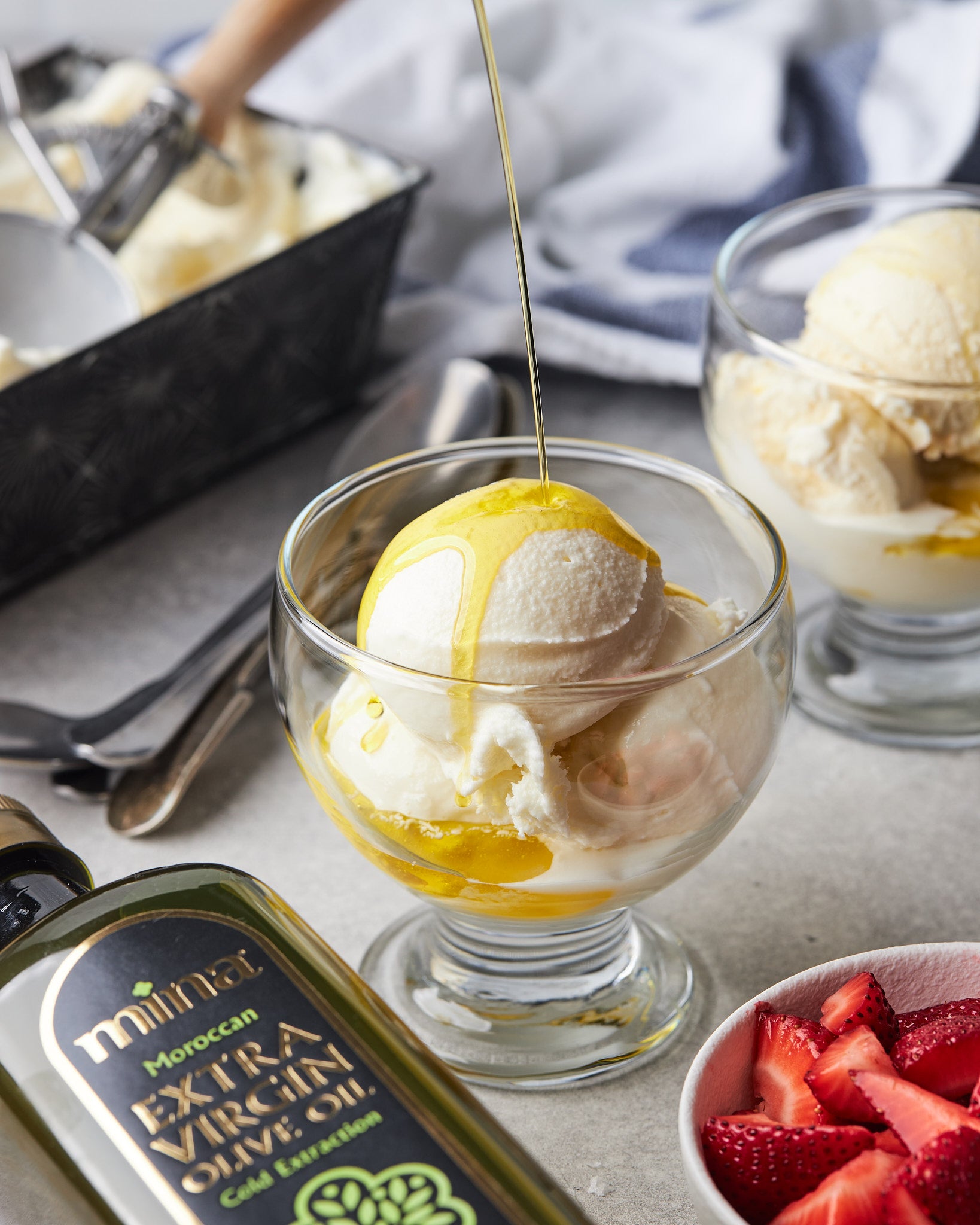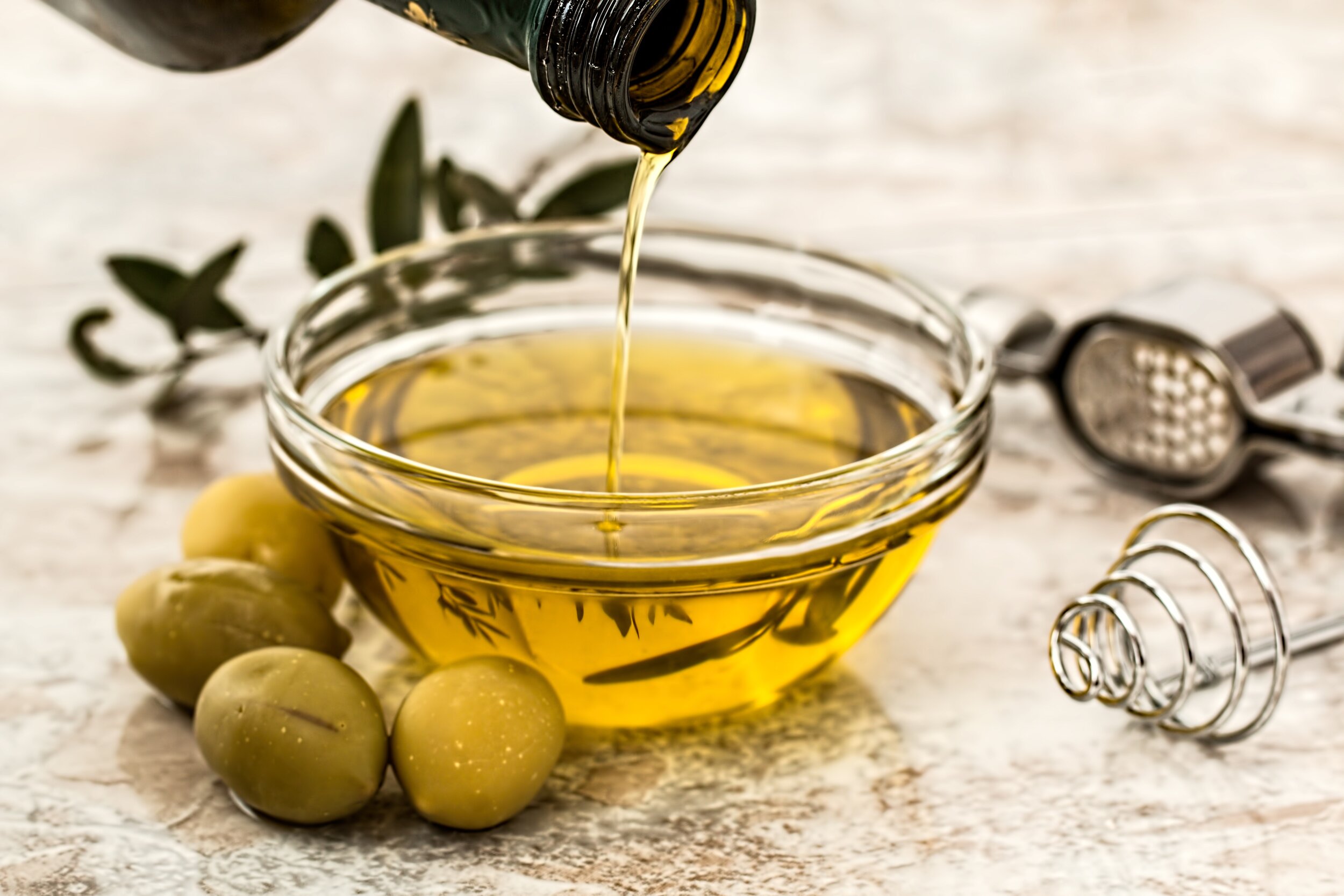Extra Virgin Olive Oil Benefits: A Simple Addition to Boost Your Immune System
Extra Virgin Olive Oil Benefits: A Simple Addition to Boost Your Immune System
Blog Article
Exploring the Different Kinds Of Olive Oil and Their Usages, Including Extra Virgin Olive Oil
The expedition of olive oil incorporates a varied variety of kinds, each offering unique tastes and culinary applications. Additional virgin olive oil, renowned for its superior quality and health and wellness benefits, works as a staple in lots of cooking areas, yet it is just one facet of this complex component. extra virgin olive oil benefits. Various other ranges, such as polished and pure olive oils, additionally necessitate attention for their special homes and uses. Understanding these distinctions can considerably influence both food preparation strategies and taste profiles. What, then, should one think about when selecting the right olive oil for a particular cooking endeavor?
What Is Olive Oil?
Originated from the fruit of the olive tree, olive oil is a staple in Mediterranean cuisine and a key component in different culinary applications. This functional oil is created by pushing whole olives, resulting in a fluid that varies in aroma, flavor, and color relying on the kind of olives made use of, the area of cultivation, and the removal procedure. Olive oil is mostly composed of monounsaturated fats, specifically oleic acid, which is understood for its possible wellness benefits, including anti-inflammatory buildings and cardio support.
Along with its cooking usages, olive oil has a lengthy background of application in conventional medicine and skincare, owing to its rich antioxidant content (extra virgin olive oil benefits). The oil is usually utilized in dressings, marinates, and for cooking techniques such as sautéing and roasting. Its unique taste account can boost the preference of different recipes, making it a necessary active ingredient for both home cooks and specialist chefs
Furthermore, olive oil is commemorated for its duty in the Mediterranean diet plan, which is linked with countless wellness benefits. As understanding of these advantages grows, olive oil remains to get popularity worldwide as an essential element of a healthy lifestyle.
Types of Olive Oil
Comprehending the different sorts of olive oil is necessary for both health-conscious customers and cooking fanatics. Olive oil is classified mostly based upon its removal method and top quality, which dramatically affects its fragrance, taste, and health and wellness advantages.

Light olive oil, despite its name, refers to a lighter flavor and not reduced calories. It is perfect for those looking for a more refined taste in dressings and marinates. Furthermore, there are flavored olive oils infused with natural herbs, spices, or citrus, which can boost meals without the need for added flavoring.
Each sort of olive oil serves details cooking objectives, and understanding these differences allows consumers to make educated choices that line up with their food preparation styles and health goals.
Extra Virgin Olive Oil
Bonus virgin olive oil (EVOO) is commonly considered as the greatest quality olive oil offered, well known for its rich flavor and various wellness benefits. To be identified as extra virgin, the oil must be created from fresh olives using mechanical procedures, without the usage of solvents or extreme heat. This precise technique preserves the oil's natural flavors, antioxidants, and healthy and balanced fats, causing a product with a low acidity level of less than 0.8%.
EVOO is bountiful in monounsaturated fats, particularly oleic acid, which is connected to decreased inflammation and enhanced heart health. It additionally consists of polyphenols, effective antioxidants that may supply protective impacts against persistent diseases. The flavor account of EVOO can vary considerably depending on the olive variety and area of manufacturing, varying from fruity and grassy to durable and peppery.

Culinary Use Olive Oil

In cooking, olive oil can be utilized for sautéing, toasting, and grilling, supplying a much healthier choice to butter or various other fats. Its high smoke point makes it ideal for different cooking methods, while its antioxidants add to a heart-healthy diet. Sprinkling olive oil over ended up recipes, such as pasta, fish, or barbequed vegetables, can boost tastes and add a touch of beauty.
Furthermore, olive oil plays a considerable role in baking, where it can change standard fats in recipes for bread and breads, passing on dampness and a refined taste. this It also functions as a base for infused oils, allowing cooks to trying out tastes such as garlic, natural herbs, or chili, additionally broadening its culinary possibility. In general, olive oil's flexibility makes it crucial in both home and professional cooking areas.
Picking Quality Olive Oil
When selecting top quality olive oil, it's vital to think about numerous key elements that affect the item's aroma, flavor, and health and wellness benefits. Most importantly, go with extra virgin olive oil (EVOO), which is derived from the very first cool pressing of olives and has the highest degree of anti-oxidants and advantageous compounds. Seek oils that are licensed by recognized companies, as this usually makes sure adherence to rigorous high quality criteria.
The packaging additionally plays a significant role in maintaining the oil's integrity. find here Pick oils kept in dark glass containers or tins to safeguard versus light destruction. Take note of the harvest day; fresher oils provide exceptional taste and nutritional value, so choose products that are within 18 months of their harvest.
Additionally, take into consideration the origin of the oil. High-grade olive oils usually come from certain areas known for their distinctive taste accounts, such as Italian, Spanish, or Greek oils. Be mindful of the taste; a good quality olive oil should have an equilibrium of fruity, bitter, and sharp notes, suggesting its splendor and complexity. By evaluating these variables, you can ensure you are picking the very best olive oil for your culinary needs.
Conclusion
In recap, the expedition of numerous kinds of olive oil discloses unique attributes and applications, with extra virgin olive oil representing the pinnacle of quality because of its reduced level of acidity and high antioxidant web content. Its convenience in culinary usages boosts flavors in dressings, marinates, and sprinkles. Understanding the various varieties of olive oil permits notified options in cooking techniques, advertising much healthier methods while improving the general gastronomic experience. Quality selection stays critical for ideal benefits.
Acquired from the fruit of the olive tree, olive oil is a staple in Mediterranean cuisine and a key component in different culinary applications.The most usual kinds of olive oil include fine-tuned olive oil, pure olive oil, and light olive oil.Extra virgin olive oil (EVOO) is commonly related to as the highest high quality olive oil readily available, well known for its abundant flavor and various wellness benefits. Opt for added virgin olive oil (EVOO), which is acquired from the initial cool pressing of olives and has the highest levels of antioxidants and advantageous compounds.In summary, the exploration of various types of olive oil discloses distinctive features and applications, with extra virgin olive oil representing the peak of top quality due to its low acidity and high antioxidant content.
Report this page